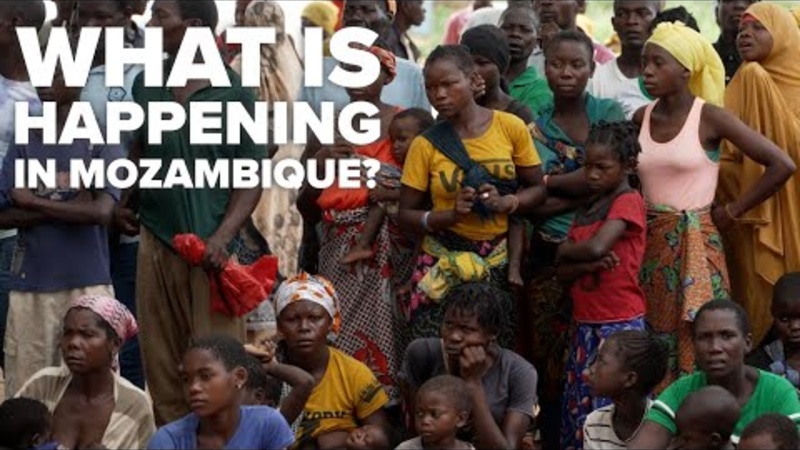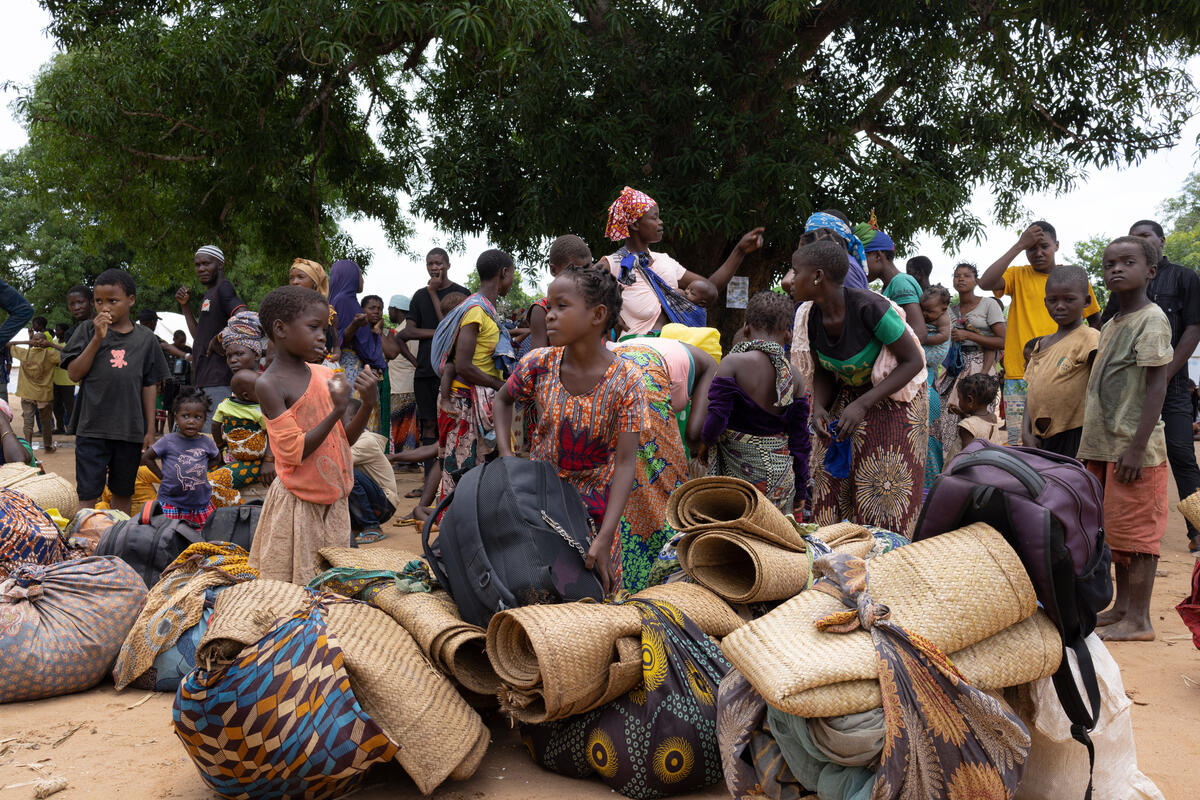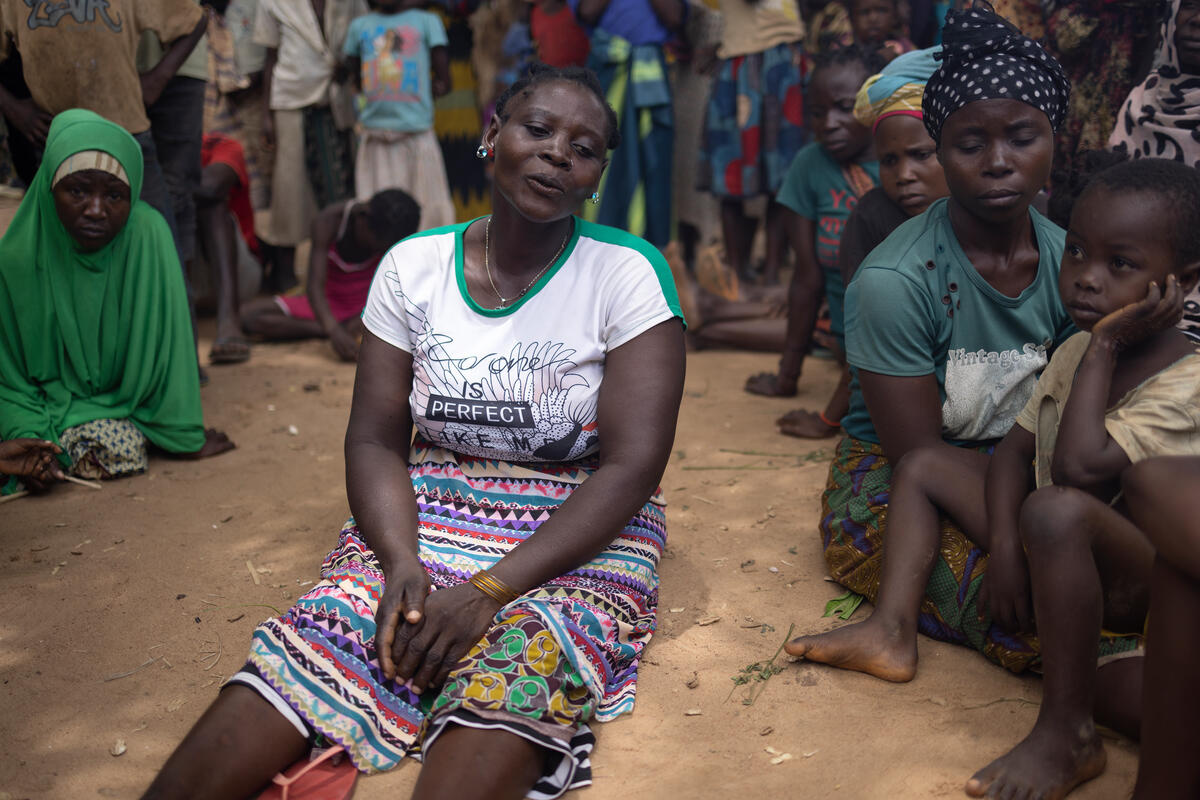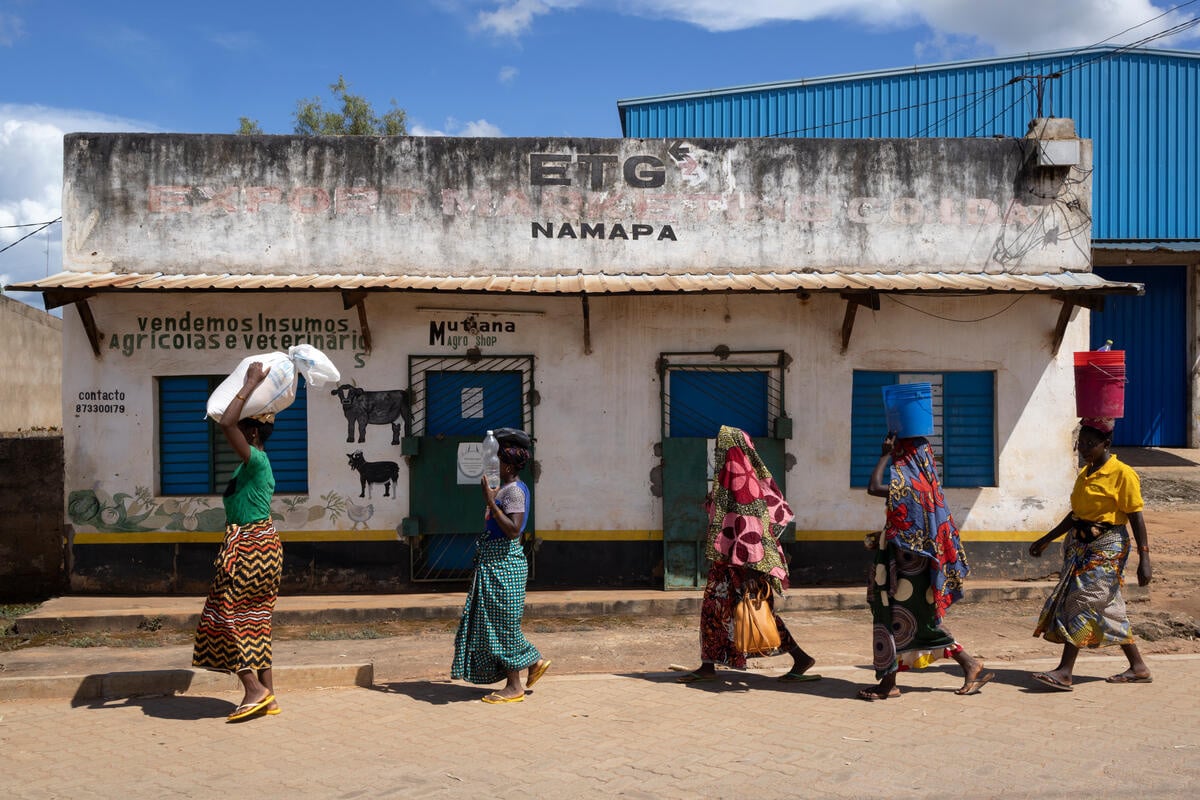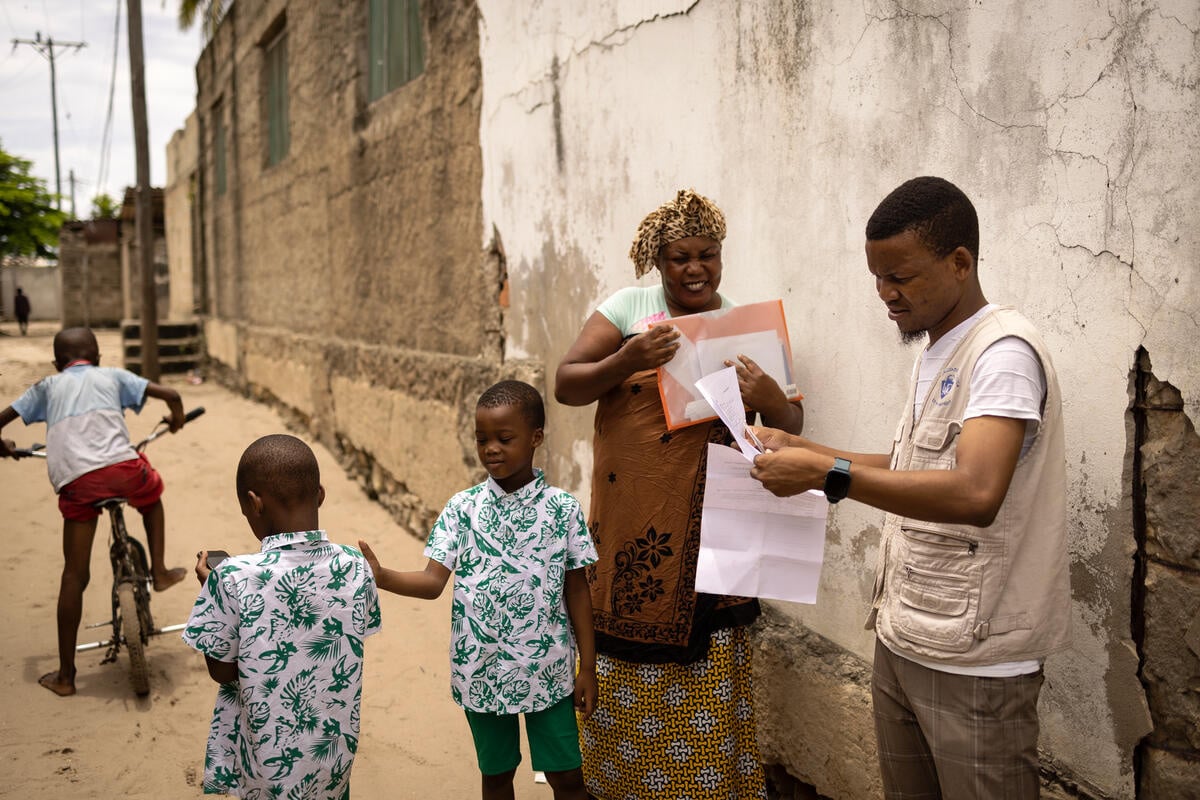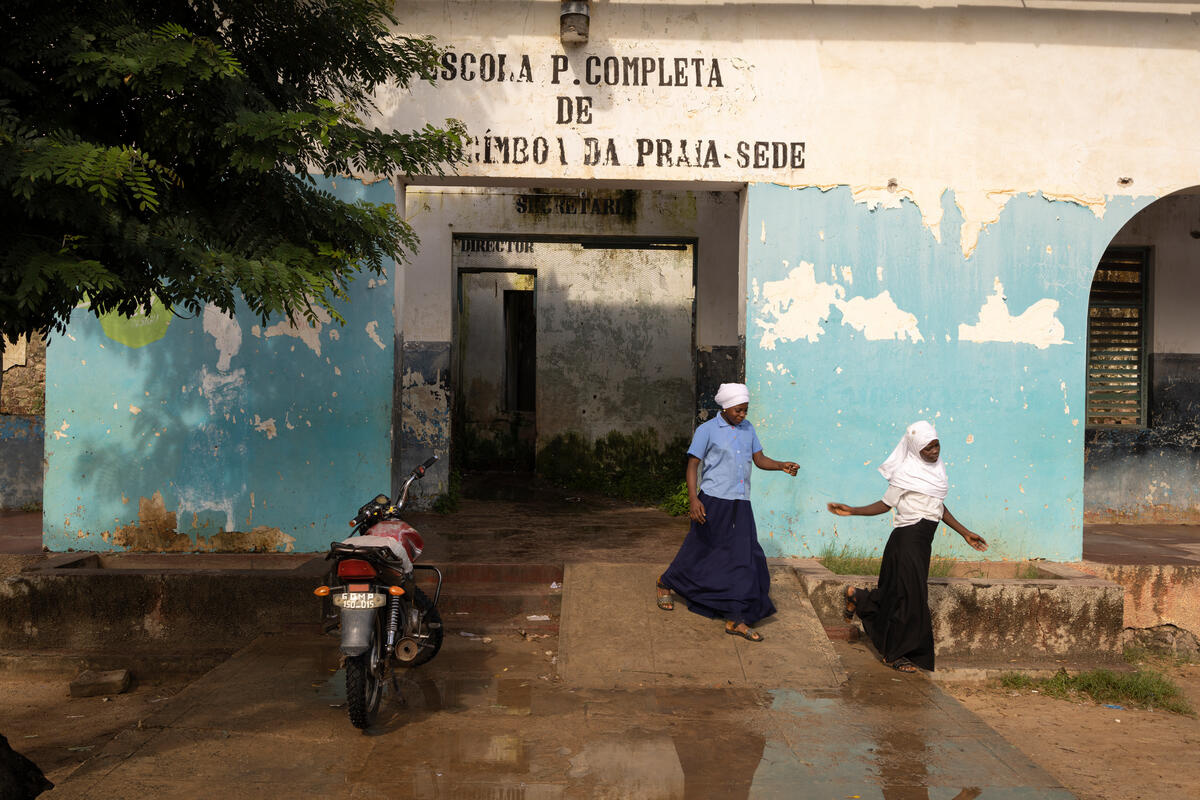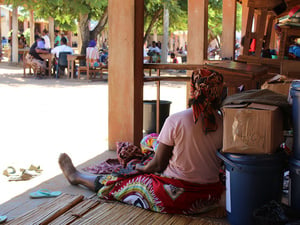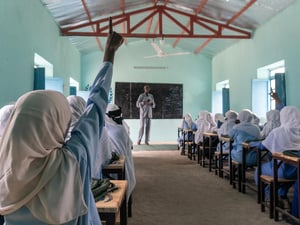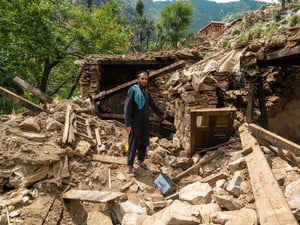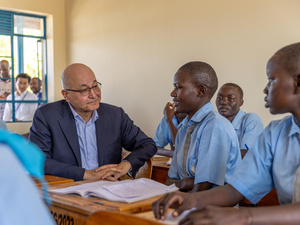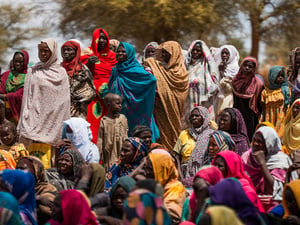In northern Mozambique, people flee new attacks while others return home
In northern Mozambique, people flee new attacks while others return home

Maizala Saidi and four of her children in front of the transit shelter in Lianda settlement where they have been staying since fleeing an attack on their village in January.
The first time armed men attacked Maizala Saidi’s village in Nangade district, in northern Mozambique’s Cabo Delgado province, the 39-year-old fled her home, and hid in the bush with her family for days, waiting for the insurgents to leave.
When they came back two months ago, they killed several people and looted and burned houses, including Maizala’s. This time, she walked for hours with her six children and elderly mother until they reached the safety of Lianda settlement, in Mueda district.
Maizala’s story is not unusual in northern Mozambique where for the past seven years non-state armed groups (NSAGs) have waged an insurgency – killing civilians, razing villages, forcibly recruiting boys and young men, and kidnapping women and girls. At the height of the conflict between 2021 and 2022, over 1 million people were displaced.
While many have since returned home, close to 800,000 people remain displaced, including over 100,000 forced to flee a new surge in violence in Cabo Delgado’s southern districts in February. The UN Refugee Agency, UNHCR, and its partners, together with the Government, must now balance the emergency needs of the newly displaced with the longer-term needs of those forced to remain in overcrowded settlements, while also supporting those returning to more secure parts of the province.
Creating a future for the displaced
Maizala and her family have been staying in a communal transit shelter with over 200 other forcibly displaced people since they arrived in Lianda. The settlement hosts some 10,000 people from the districts of Mueda, Nangade, Palma, Macomia and Muidumbe, with more arriving after each new attack.
“I need a small piece of land and some tools to farm here in Lianda, so that I can provide food for my children and my mother,” says Maizala. “Back home, I was a farmer and we survived, but here we do not have anything. I would also like to leave the transit centre and have a house of my own here.”

Nearly 1,000 shelters for displaced families have been built in Lianda settlement, but many more are needed.
UNHCR, and its partner, Solidarités International, have built 915 shelters in Lianda since 2021, and another 100 are being built in 2024 in partnership with the authorities, but some 1,800 families still lack shelters. Like Maizala, they are currently staying in transit centres or in makeshifts structures, exposed to the wind, rain, heat and insects.
Providing longer-term assistance to the displaced in Lianda, and in other settlements in Cabo Delgado, presents a significant challenge in the face of a chronically underfunded humanitarian response. So far, only 17 per cent of the $49.3 million UNHCR needs in 2024 has been funded
“We need to go further, look beyond humanitarian aid and strengthen development investment to the country – to create conditions for lasting peace, and a viable future for the displaced and their hosts,” said UNHCR Chief Filippo Grandi during a visit to Mozambique last week. “The UN must continue to support Government efforts to meet short- and long-term needs of the people while advocating for additional support to Mozambique."
Authorities and community leaders are working closely together to slowly transform Lianda from a settlement into a village that is integrated into surrounding communities. They are also working with aid agencies, including UNHCR, to improve livelihood and economic opportunities, such as trainings to open small businesses or develop permaculture, in most settlements for the displaced in Cabo Delgado.
In Chiure town, which received most of the newly displaced people following the February attacks, most arrivals are women and children who left everything behind when their villages were attacked. “My first priority was to gather my three children, and to flee. Everyone from the village left,” explains Elvira, 38, who found refuge at a temporary site. “I don’t want to go back there at this point. People I knew were killed; some were beheaded. I may decide to restart my life somewhere else.”
UNHCR has provided sleeping mats, blankets, mosquito nets, tarpaulin, kitchen sets, and other core relief items to over 900 families in Chiure, with more distributions planned in the near future. The agency is also distributing non-food kits to 1,500 displaced families in Namapa, in neighbouring Nampula province, in the coming weeks.
Rebuilding lives
Despite the recent attacks, security has improved in some areas. Since a military intervention by Mozambican and allied forces starting in July 2021, and the Government’s efforts to start re-establishing services, over 632,000 people have returned to their homes in Cabo Delgado, Niassa and Nampula provinces.
In the coastal town of Mocímboa da Praia, which was heavily impacted by the conflict in 2017, and again in 2020, normal life has been gradually returning since Mozambican and allied forces regained control in August 2021. Some schools, police stations and other services have reopened and about 144,000 of the town's original 170,000 inhabitants have returned home and are starting to rebuild their lives.
Further north in Palma, which suffered a brutal attack in March 2021, most of the town’s 70,000 inhabitants have also returned, although many services are still lacking.
Accessing the few services that are available is difficult for displaced people whose documents were lost or destroyed during attacks. UNHCR has established civil documentation mobile caravans, together with the Government and local partner Catholic University of Mozambique, to issue birth certificates and national IDs that help people regain their legal identities. Thanks to the caravans, some 27,000 people have received new documents since 2021.
“Returnees need a lot of help,” says Gracilio Tiago, 49, a teacher at one of the town’s schools, whose wife was killed during the 2021 attack. “Many houses were destroyed and a lot of families are not sheltered properly. There is also a huge scarcity of potable water, a lack of medical assistance, food, jobs.”
Since returning to Palma in August 2022, Gracilio finds hope through the young people he teaches. “I tell my students they should study because without education, you are not protecting your own future.
“In a war like we faced, a lot gets lost. We don't want war, we want peace.”

